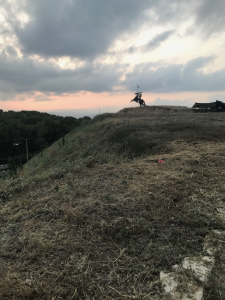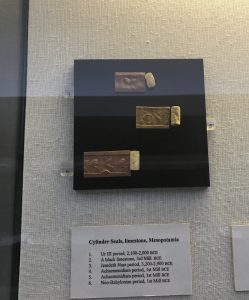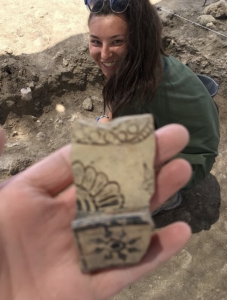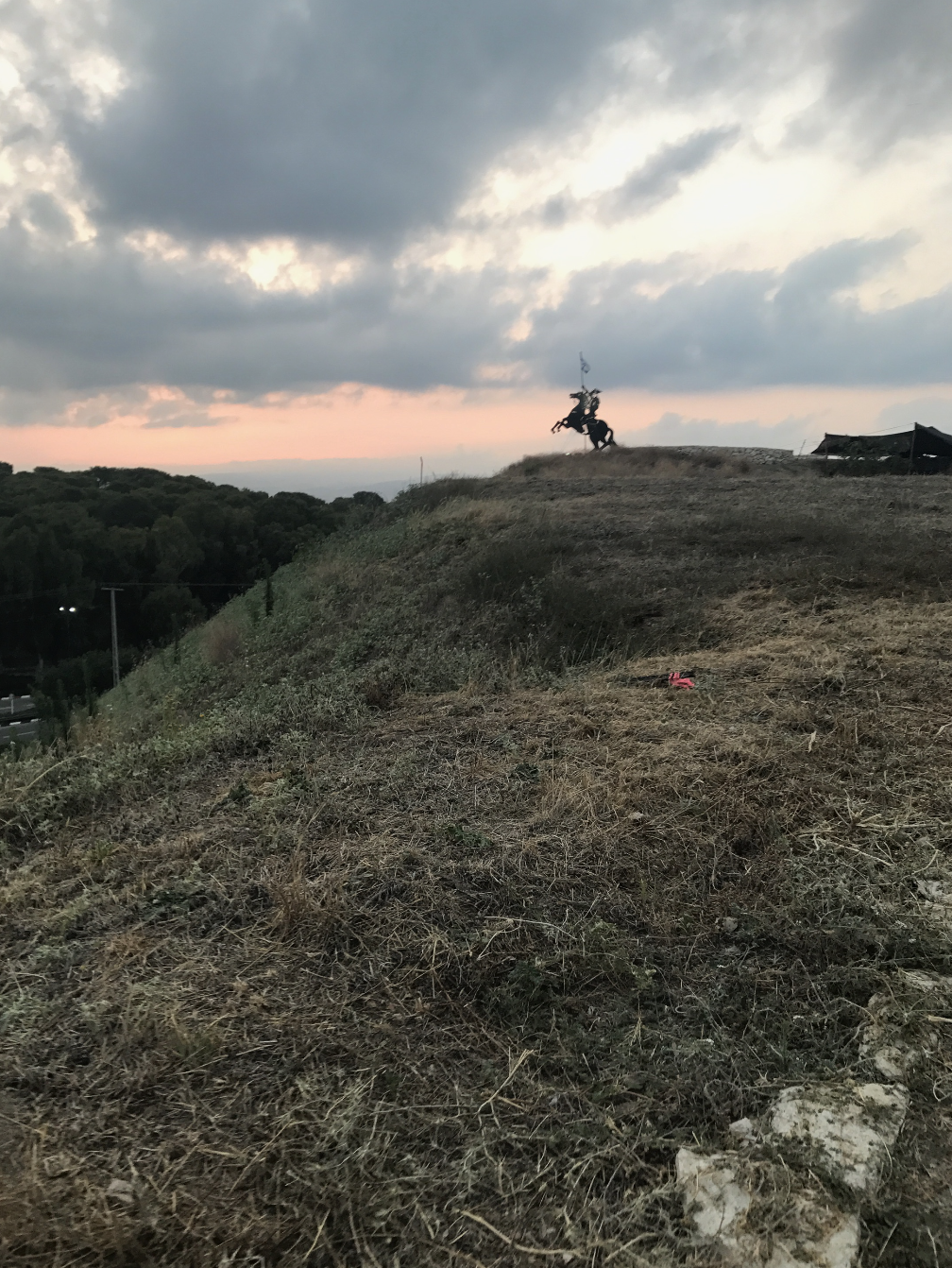by Paige Ekert.
As we arrived to the tel on that first morning, one thought kept running through my head over and over again, “What am I doing here? I can’t possibly belong.” I was surrounded by students who have been studying archaeology, history, and anthropology for years. Many of those who weren’t students were experts in their respective fields, and most had as many years of experience in their fields as the amount of years I’ve been alive, if not more. I fell into neither of these two distinct categories. Instead, I am one of the younger students, having only just finished my freshman year, and I am a STEM major on top of it. Not only do I have no background in the subject matter, I have a completely different frame of mind, career goal, and general interests than most of my other colleagues and I was hyperaware of this distinction.
I was highly intimidated by nearly everyone that I met that first week, and felt vastly inferior to most. I had a hard time contributing to conversations about global politics, historical events, religion, anthropological topics and other ‘worldly’ themes. In all honesty, I felt isolated. At school, I could talk for days about biofilms and dispersal, yet here, I found myself in an academic setting in which I could not find my footing. I knew that there must be some benefit to my being here, as I obviously would not have been accepted into the program otherwise, however I was struggling to see any of them. I knew that I would learn everything that was absolutely necessary for me to learn and I knew that I would still make friends regardless of our separate interests, but each day pushed me further and further away from my comfort zone and I wasn’t sure if I liked that.

The First of Many Sunrises at Tel Akko
As a biology major, I am generally most comfortable being in completely sanitary and sterile conditions. I typically work with microorganisms and other ‘invisible’ beings. There is a great deal of silence while working and typically it takes a substantial amount of time to ‘discover’ the results of the tests that I run. Needless to say, the first day in the field was accompanied by a fair dose of culture shock. I came back from the tel covered in dirt, sand, and unidentifiable grit. My hair was pulled out of its once neat ponytail and the clothes I wore were virtually destroyed. The objects we excavated were typically big enough to be seen by the naked human eye and were fairly easy to identify. There was a jovial social aspect in the field that I had never encountered before. I was absolutely exhausted and mentally drained due to the physicality of the work, the intensity of the sun and the amount of information that was being thrown at me while at the tel. Never before had I been less prepared for the work I was doing and I was completely overwhelmed by the unfamiliarity that surrounded me. I continuously told myself that change is good and kept working to maintain a positive outlook on the project as a whole, focusing specifically on the relative uniqueness of my situation and realizing the advantageous aspects of this trip that I would surely benefit from.
As time went on, I began to feel more comfortable on the tel; I learned more and more about archaeological theories, applications, and skills, the context of my specific square, and the expectations in place for me. I even began to see the similarities between the processes I was accustomed to and the ones being performed at the tel. There was a scientific method in place and the highly descriptive notes being taken by supervisors were vastly similar to the ones I take in my own lab. After working on the tel, I occasionally attended archaeobotany sessions and did flotation tests on soil samples taken during excavation. I no longer felt like a complete stranger in this new world. Every single person that I met was more than happy to explain anything I needed clarification on and I started to fall into a routine and become comfortable with the daily tasks assigned to me.
Last Thursday, this routine was interrupted in the best of ways. While sifting through four buckets of cleared dirt from a small area of my square that I was excavating, I stumbled upon what I believed to be an ancient bead. It was about 2 centimeters in height, black, and had a hole on either end. I threw it in a bucket and planned on asking someone about it when I had a chance. A while later, I showed it to my lovely square supervisor who very loudly exclaimed several expletives and began running around with this very small, seemingly not so important bead. My area supervisor had us halt operations in our square to show him where I was excavating. It was then that I began to think that the bead I had found had some kind of mysterious significance. I was then informed that I had found a stone cylinder seal. I smiled and went back to sweeping dirt in another part of the square. I suppose it was at this moment that my obliviousness regarding this tiny object was revealed. A group of people gathered around me to explain the role of cylinder seals in Mesopotamian culture and it was later disclosed to me that this was only the second of its kind to be found on the tel (and the first to be found in a context). “Wow”, I thought, “My fancy little bead is indeed really cool”.

Stone cylinder seals and their designs rolled onto clay as found in The Reuben and Edith Hecht Museum at Haifa
Throughout the day, people kept commenting on how ironic it was that I, who didn’t even know what it was, found the seal, when people who study archaeology and anthropology are left to sift through mounds of dirt only to find more dirt. I fully attribute this find to luck, but am ultimately just happy to have been given an opportunity to learn a little more about a field that I admittedly know not very much about, while feeling a tad reaffirmed in my developing skills.
There is undoubtedly much, much more for me to learn in this field, and I strongly believe that one never truly stops learning in this field, or any other for that matter. I may not have known exactly what I was doing when I first arrived and I still might have to ask a hundred questions each day, but I learn more and more each minute I spend on the tel and get to experience something that I wouldn’t have been able to had I stayed on a traditional path and confined myself to one field. I can say with absolute certainty that I am a better student, scientist, and person because of this project. I may be out of my element, but I think it might just be okay.

A Very Happy Biology Major

2 Comments